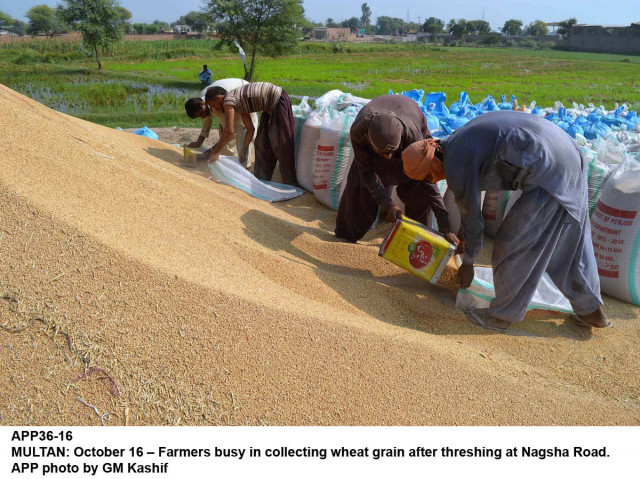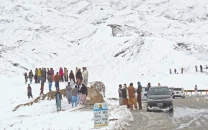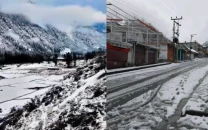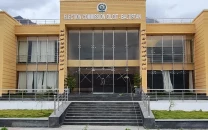Food insecurity: Why should we grow crops, ask Gilgit farmers
Urbanisation, development and govt dole threaten region’s agricultural backbone

Rehman’s government realizes that they need to find a more permanent and local solution to the subsidy and revive agriculture in the region. PHOTO: APP
The region, where hardly two per cent of land is arable but has a teeming population of over 1.4 million people, is in danger of facing acute food shortages especially in the wake of another natural calamity such as the creation of the Attabad Lake or if Islamabad decides to withdraw the massive subsidy it provides for wheat.
“We used to harvest wheat and maize until a decade ago,” recalls Muhammad Ayub, a former farmer who lives in Kashrote area of Gilgit. “But today we can’t as houses have sprung up everywhere,” he says matter-of-factly. “We purchase everything from the market now.”

Kashrote, once considered as one of the best places in the region for agriculture due to the abundance of water and fertile land, has been overtaken by unplanned construction which has been spilling over from the bulging Gilgit city.
Situated adjacent to Gilgit Airport, its topography has changed from lush green to dull concrete grey and has little by way of farming now.
The situation in Kashrote is similar to those in other areas of Gilgit including Nagral, Majini Muhalla and Ampheri.
“The question is, why should I grow wheat now?” asks Arshad Ali, another resident.
“The very thing that we used to work so hard for, is now available at such a low price,” he said referring to the massive subsidy which the government provides for wheat.
The subsidy dates back to 1970s when then prime minister Zulfikar Ali Bhutto authorised wheat for G-B on subsidised rates since local production was insufficient to meet demand and transporting wheat from other provinces added significantly to the cost. The subsidy on 1.5 million bags a year continues till today in a region where a bag of 40 kilogrammes is available for just Rs600 to Rs700 – almost 50% less than what is charged in Punjab- the province where it is grown.
“This (dependence on subsidy) can cost people dearly,” forebodes Maisoor Nafees, an agriculturist who teaches at the Karakoram University in Gilgit.
“G-B is prone to landslides and any major disaster can cut it off from rest of the country triggering a crisis,” Nafees told The Express Tribune referring to floods that struck G-B in 2010, cutting it off for over a month.
The prolonged disconnection meant stocks of grain and other commodities in G-B were depleted, almost causing a famine.
Addiction
Chief Minister Gilgit-Baltistan, Hafeezur Rehman is someone who feels most uncomfortable about the subsidy, but he has had little option but to succumb to the pressure exerted by powerful bodies such as the Awami Action Committee (AAC).
“I’m sorry to say this subsidy has turned us into addicts,” Rehman told a gathering last week.
“There are certain elements which are politicking on this issue,” he said, referring to 13-day long sit-in which the AAC held during the previous Pakistan Peoples Party (PPP) government to get the subsidy restored which had been withdrawn by the federal government.
The AAC is an alliance of various groups and parties formed to keep the subsidy intact as it links subsidy to G-B’s disputed constitutional status that keeps it away from mainstream politics.
“Due to the subsidy, we owe Rs30 million to Pakistan Agriculture and Storage Corporation (PASCO),” Rehman said, highlighting how the subsidy was not only affecting local agriculture but was also embroiling the region into a vicious cycle of debt.
Corrective measures
However, Rehman’s government realizes that they need to find a more permanent and local solution to the subsidy and revive agriculture in the region.
Earlier this month, the government formally launched a $120 million agriculture development project, co-funded by the International Fund for Agricultural Development (IFAD), which would help irrigate around 50,000 acres of barren land in the mountainous region, and help break their dependence on wheat from other areas of the country.
Published in The Express Tribune, October 17th, 2016.


















COMMENTS
Comments are moderated and generally will be posted if they are on-topic and not abusive.
For more information, please see our Comments FAQ